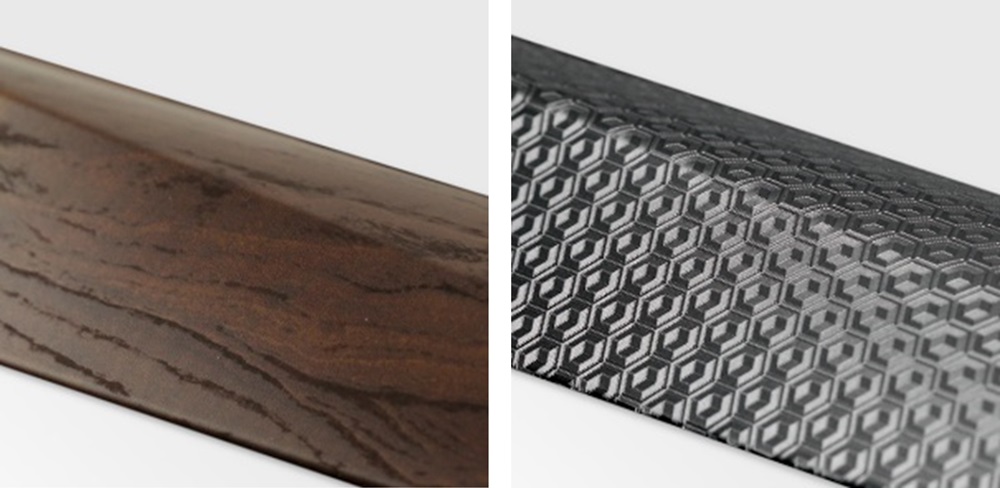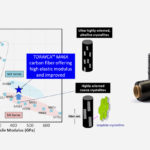ASIA ELECTRONICS INDUSTRYYOUR WINDOW TO SMART MANUFACTURING
DNP to Promote Vehicle Recycling in New Decorative Film
Dai Nippon Printing Co., Ltd. (DNP) has established a mass-production technique for environmentally friendly propylene (PP) based decorative film for automobile interiors. Specifically, this move could promote vehicle recycling efforts.
The latest environmentally friendly decorative film will be on display at Automotive Engineering Exposition 2024 ONLINE. STAGE 1 is being held from May 15 until June 5 and STAGE 2 from July 10 to July 311.

Background of Development
Each year, approximately 3.5 million cars are scrapped in Japan. However, following the enactment of the Automobile Recycling Law2 in 2002, more than 95%3 of end-of-life vehicles are now recycled. To date, Automobile shredder residue (ASR), such as plastic waste left after dismantling and shredding have been thermally recycled via incineration.
Meanwhile, in Europe, revisions to the Draft Regulations on Sustainability Requirements in Vehicle Design and End-of-Life Vehicles (ELV) Management are being considered. Also, the use of recycled plastics in vehicles is expected to become mandatory in the future. Domestic and foreign automobile manufacturers and companies that handle automobile-related parts are taking steps to respond to this situation.
Leverages In-House PP Film Technologies
The environmentally friendly decorative film to be mass-produced by DNP capitalizes on the long-standing in-house development of PP film printing and processing technology. As a result, the film achieves a high-quality design and ease of handling for insert injection molding process. Additionally, the PP decorative film produced by DNP is also expected to reduce greenhouse gas (GHG) emissions.
Specifically, PP is used in large quantities as automobile part and is suitable for recycling. Further growth is expected in the future. However, when it is used as a base for decorative films, it poses weak ink adhesion. Also, the difficulty of maintaining the balance between the high quality design, physical properties and moldability has been a challenge.
DNP has overcome these challenges by leveraging the printing technology and know-how it has cultivated over many years to establish a mass production technology for PP-based automotive decorative films.
Decorative Film Features, Benefits
By providing decorative films for automobile interiors based on PP, the company will contribute to automobile recycling.
PP emits lower GHG during raw material manufacturing than the currently commonly used acrylonitrile butadiene styrene (ABS). As a result, it can be expected to lead to a reduction in GHG emissions for vehicle as a whole.
By applying and developing DNP’s converting or material processing technology4, DNP has achieved an excellent design quality, physical properties, and moldability for PP-based automotive decorative films.
Going Forward
DNP will provide environmentally friendly automotive decorative films that contribute to recycling, mainly to the domestic and overseas automotive industries aiming for cumulative sales of 10 billion yen by fiscal 2030. In addition, as a further environmentally friendly product, DNP has also developed an exterior film that does not require a painting process.
The company collaborates with DNP Europe GmbH, DNP America LLC, and DNP Living Space & Mobility (Shanghai) Co., Ltd. to expand its business worldwide. Also, it plans to further accelerate its expansion in the future.
Notes:
1: For more information about the DNP exhibit, please visit: https://www.dnp.co.jp/biz/eventseminar/event/20173934_4966.html (in Japanese Only)
2: For more information about the Automobile Recycling Law, please visit: https://www.meti.go.jp/policy/mono_info_service/mono/automobile/automobile_recycle/about/recycle/recycle.html (in Japanese Only)
3: For more information about recycling please refer to information from the Japan Automobile Manufacturers Association at https://www.jama.or.jp/operation/ecology/recycle/index.html (in Japanese Only)
4: Converting technology: A processing technology that transforms and combines materials. DNP maintains strengths in processing materials such as films including film forming, coating, laminating, configuration, transfer, slitting, printing, and molding.
-05 June 2024-




